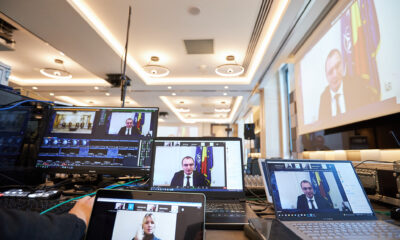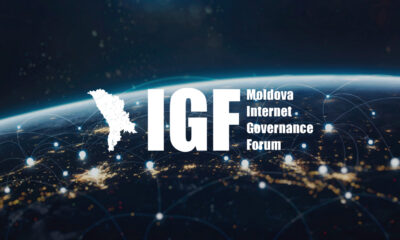IT
Is Chișinău becoming a global tech centre? A synthesis of the IT activity in Moldova
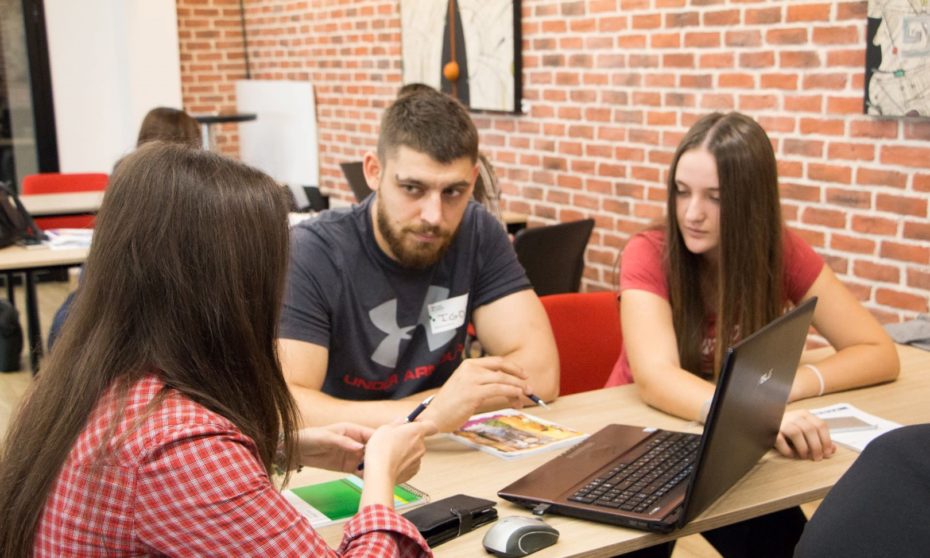
From San Francisco to Hong Kong, all over the globe, the information technology is flourishing. Everyday, new software and devices are invented (just look at this beautiful Gmail app for Mac), and new tech centres are built. Among the IT global giants, there is a small city that is still at the beginning of its way – Chișinău, Republic of Moldova.
According to the IDC CEMA research, Republic of Moldova has all the competitive advantages for placing its IT products and services on the international market. Moldova has geographical proximity and cultural compatibility with the western and eastern Europe, visa liberalisation, highly qualified human resources, tax benefits, a developed infrastructure in the Information and Communication Sector, low costs for business launching and developing, as well as relatively low human resources costs, and the government support in attracting new investments in the IT sector.
Macroeconomic importance
The analysis made by the Directorate of Economic Policy and Business of the Ministry of Economy and Infrastructure indicates that the Information and Communication Technology sector (ICT) registers the highest growth in the last 8 years and becomes more and more attractive for the investors. In 2018, it reached a share of 6.6% of the country’s GDP and is steadily in a rising trend.
Within the event “PIN Awards 2018” that took place in April at Iași, Romania, 500 IT companies registered in Republic of Moldova were reported. These companies hire more than 12500 employees and have a turnover of around 152 million dollars in total.
The entrepreneurial environment
Nowadays, it is way easier and more accessible for the Moldovan entrepreneurs to develop a tech startup business. In comparison to 2010, when startups were established merely on the own expense and risk of the founders, today more and more possibilities of applying for financing and assistance from outside the company appeared. For instance, there is Business Angels Moldova – a company that offers funding of up to 25000 EUR, mentorship, legal support and free space for the startup’s activity in return to 15% of the business.
In the Republic of Moldova, several startup accelerator programs (Founder institute, Startup Academy, Dreamups), training programs (Tekwill Academy), hubs and coworking spaces for freelancers, startups, IT companies, NGOs and investors (Generator Hub, IHub, Dreamups, Digital Park, Tekwill) are being developed. Therefore, the number of the IT projects and events has raised as well (Ignite Chișinău, Chișinău Startup Week, Startup Weekend, Startup Weekend Woman, Techvillage, etc.)
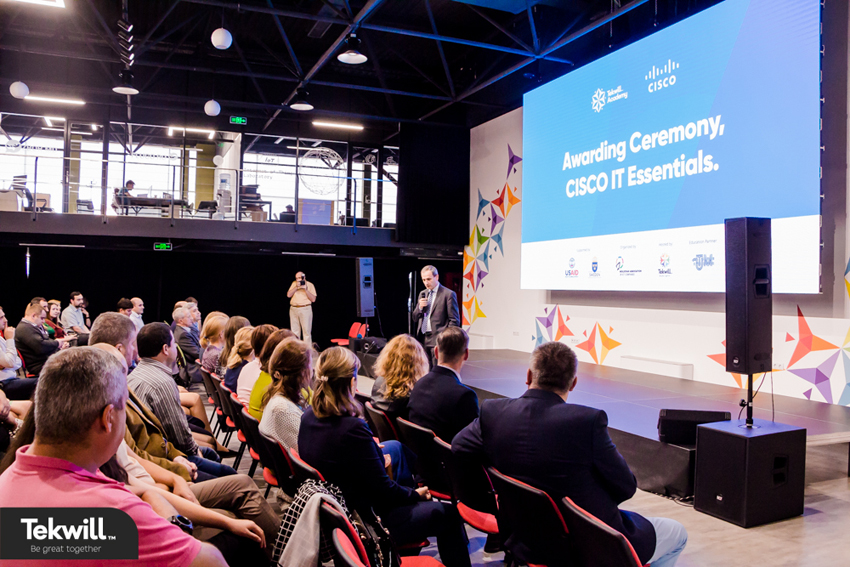
Photo source: locals.md
In the last years, more than 50 startup companies were founded in Moldova, among the most active startups being Diez, Paynet, Privesc.eu, Planable, Lobster, XOR, Vintage, Retently, etc.
At the initiative of the Moldovan Association of Information and Communications Technology Companies (MAICTC) and with the support of the Competitiveness Project, the first IT park – Moldova IT Park was launched at the beginning of this year. The Moldova IT Park comes in an innovative form – the park is only a virtual entity, the resident companies working directly from their offices. It is considered one of the most important IT initiatives in the country, as the activity of the IT park is enforced by a promulgated law (the law nr. 77/2016 and the Government decision 1144/2017). One of the stipulated legal conditions says that the employees of the IT park have to be engaged in at least one of the following activities: software development, software editing, computer games development, computing technologies, servers and IT solutions, data processing, web site management or IT consultancy.
Until September 2018, 250 companies that perform their activities in IT have already obtained the resident status of the IT park, as reported by a national news portal. “The main scope of the IT park is designing an organisational platform that enables and facilitates the information technology industry development, creating new jobs and attracting local and foreign investments”, as the Ministry of Economy and Infrastructure press service announced.
Tacit Knowledge is one of the Moldova IT Park residents since February 2018. “We were very happy to discover that the concept of IT park was implemented in Moldova. We would like to retain our human talents and we consider that the provided mechanisms of facilitating the business management through the IT parks would represent an important incentive to the growth of the IT engineers’ number and persons that choose to follow an IT career”, declares Vadim Echim, the Tacit Knowledge CEO, for diez.md.
IT legislative Benefits
The Republic of Moldova has created through its legislation several important benefits for the entrepreneurs and workers in the Information Technologies sector. In order to promote the foreign investments, the process of obtaining work permits and visas for foreign citizens wishing to undertake IT activity in the Republic of Moldova was facilitated. Therefore, according to the law amendments, the specialists that work in an IT park can obtain a long-term visa for a period of maximum 12 months with one or multiple entries. Afterwards, they can apply for a permanent residence permit without meeting any special requirements like owning property, speaking the Romanian language or having previously a temporary residence permit of 3 to 5 years with proof of income.
As it is stated in the current law, the tax benefits for the residents of the Moldova IT Park include a 7% single tax on corporate income that is not lower than 30% of the average monthly wage, calculated per employee. The same ratio applies for the income tax on salary, social security and medical contributions payable by employees and employers, local taxes, real estate tax, and tax for the use of roads by motor vehicles registered in the Republic of Moldova. Moreover, an improved and simplified tax administration mechanism and access to a direct and effective dialogue with state authorities were provided.
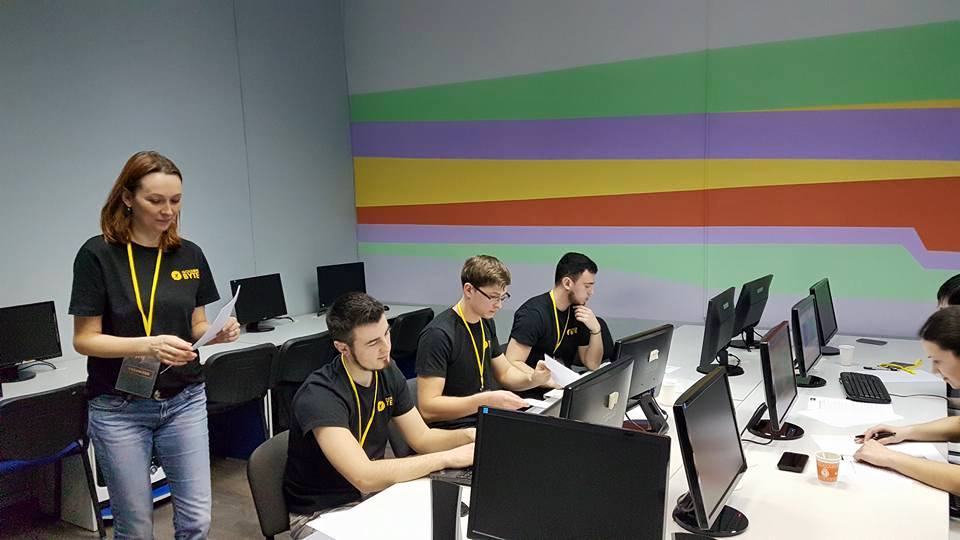
Photo Source: Facebook| Startup Academy
Through a single 7% tax, it is intended to reduce the phenomenon of paying salaries under the table. Sergiu Voitovschii, the Moldova IT Park administrator, mentions in an interview for Bizlaw that “The entrepreneurs that are members of the IT park have the possibility to pay higher salaries as compared to the standard tax rate.” There are already several registered companies with foreign capital and joint ventures. Therefore, the Moldova IT Park is viewed as an opportunity for foreign investors as well.
External cooperation
Moldova is seen by foreign companies as an IT nearshoring or offshoring destination. The MAICTC catalogue includes more than 30 foreign companies that carry out their activity in the hardware and software development, as well as telecommunications. Among them are some global leaders like Allied Testing, Endava, HP, Intel corporation, Pentalog and PWC. Some of the foreign companies have settled their offices in Chișinău, some of them established partnerships and joint ventures with the local companies, and others contracted companies from Moldova for outsourcing a part of their activity.
Education
At the national level, more than 20 educational institutions offer courses related to IT and STEM (Science, Technology, Engineering, Mathematics), out of which 11 universities, 4 training centres and 3 vocational schools.
Beside the public institutions, there are some nonconventional educational forms such as trainings organised by the IT companies, online trainings, IT Academies, Summer Schools for pupils and mentorship provided within the accelerator programs.
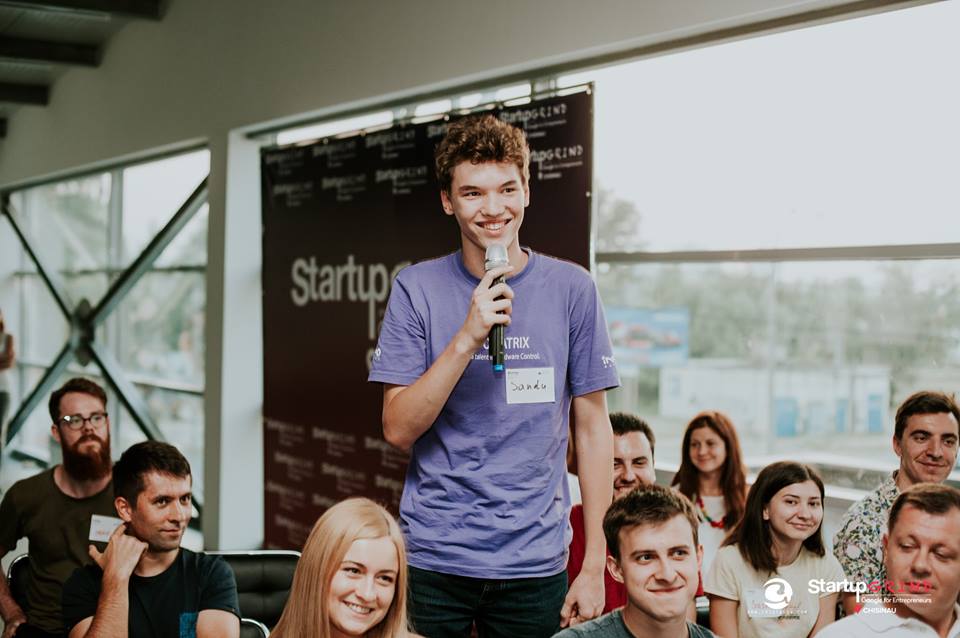
Photo source: Facebook| Startup Weekend
Challenges
Even though the IT sector in Republic of Moldova is in a continuous advancement, there are still some problems. The most stringent one is the insufficient number of qualified IT engineers. Companies on the local market are ready to hire at least 1000 new specialists every year, whereas only a half of the labour demand is covered. The main reason for such a low labour supply is the small number of students that graduate the Moldovan universities. Last year, the number of registered students at the IT specialisations of the Technical University of Moldova reached 3800 candidates, out of which only 15% are still studying. Others chose another specialisation or left the country.
“Moldova became an attractive tech centre. If the local companies had enough IT specialists, they would be able to engage in 50% more projects than they do at the moment”, mentions Eugene Galamaga, the director of the Allied Testing company. Because of the limited choice of experienced professionals, companies have become more flexible when hiring new employees. They turn towards students and try to inform them about the skills and abilities one should have in order to be hired. “For 4 years already, we organise an internship program for students. In such a way, we prepare the future employees and we make them a job offer afterwards”, points out Vadim Echim, the Tacit Knowledge CEO.
Some foreign employers went further and founded training programs for their future and current employees. It is the case of Endava that launched the program “Endava University”, offering trainings in the universities lead by the Endava mentors, trainings inside the company for developing the technical and soft skills. They also organise teambuilding, career coaching and offer extra-wage benefits for their employees.
As a solution for the stated problems, IT employers asked the government to create incentives for increasing the number of students that graduate in technical specialisations and to invest more in the IT education. “No local or foreign investor will have the opportunity to develop on a market where human resources are lacking”, Eugene Galamaga says.
Thus, the Republic of Moldova is still far from being named a global tech centre, but with the proper measures and common effort of the companies, IT community and the government, it has the potential of becoming a developed IT arena, at least at the regional level.
Featured image source: Facebook|Startup Academy
Society
“They are not needy, but they need help”. How Moldovan volunteers try to create a safe environment for the Ukrainian refugees

At the Government’s ground floor, the phones ring constantly, the laptop screens never reach standby. In one corner of the room there is a logistics planning meeting, someone has a call on Zoom with partners and donors, someone else finally managed to take a cookie and make some coffee. Everyone is exhausted and have sleepy red eyes, but the volunteers still have a lot of energy and dedication to help in creating a safe place for the Ukrainian refugees.
“It’s like a continuous bustle just so you won’t read the news. You get home sometimes and you don’t have time for news, and that somehow helps. It’s a kind of solidarity and mutual support,” says Vlada Ciobanu, volunteer responsible for communication and fundraising.
The volunteers group was formed from the very first day of war. A Facebook page was created, where all types of messages immediately started to flow: “I offer accommodation”, “I want to help”, “I want to get involved”, “Where can I bring the products?”, “I have a car and I can go to the customs”. Soon, the authorities also started asking for volunteers’ support. Now they all work together, coordinate activities and try to find solutions to the most difficult problems.
Is accommodation needed for 10, 200 or 800 people? Do you need transportation to the customs? Does anyone want to deliver 3 tons of apples and does not know where? Do you need medicine or mobile toilets? All these questions require prompt answers and actions. Blankets, sheets, diapers, hygiene products, food, clothes – people bring everything, and someone needs to quickly find ways of delivering them to those who need them.
Sometimes this collaboration is difficult, involves a lot of bureaucracy, and it can be difficult to get answers on time. “Republic of Moldova has never faced such a large influx of refugees and, probably because nobody thought this could happen, a mechanism of this kind of crisis has not been developed. Due to the absence of such a mechanism that the state should have created, we, the volunteers, intervened and tried to help in a practical way for the spontaneous and on the sport solutions of the problems,” mentions Ecaterina Luțișina, volunteer responsible for the refugees’ accommodation.
Ana Maria Popa, one of the founders of the group “Help Ukrainians in Moldova/SOS Українці Молдовa” says that the toughest thing is to find time and have a clear mind in managing different procedures, although things still happen somehow naturally. Everyone is ready to intervene and help, to take on more responsibilities and to act immediately when needed. The biggest challenges arise when it is necessary to accommodate large families, people with special needs, for which alternative solutions must be identified.
Goods and donations
The volunteers try to cope with the high flow of requests for both accommodation and products of all kinds. “It came to me as a shock and a panic when I found out that both mothers who are now in Ukraine, as well as those who found refuge in our country are losing their milk because of stress. We are trying to fill an enormous need for milk powder, for which the demand is high and the stocks are decreasing”, says Steliana, the volunteer responsible for the distribution of goods from the donation centers.
Several centers have been set up to collect donations in all regions of Chisinau, and volunteers are redirecting the goods to where the refugees are. A system for processing and monitoring donations has already been established, while the volunteer drivers take over the order only according to a unique code.
Volunteers from the collection centers also do the inventory – the donated goods and the distributed goods. The rest is transported to Vatra deposit, from where it is distributed to the placement centers where more than 50 refugees are housed.
When they want to donate goods, but they don’t know what would be needed, people are urged to put themselves in the position of refugees and ask themselves what would they need most if they wake up overnight and have to hurriedly pack their bags and run away. Steliana wants to emphasise that “these people are not needy, but these people need help. They did not choose to end up in this situation.”
Furthermore, the volunteer Cristina Sîrbu seeks to identify producers and negotiate prices for products needed by refugees, thus mediating the procurement process for NGOs with which she collaborates, such as Caritas, World Children’s Fund, Polish Solidarity Fund, Lifting hands, Peace Corps and others.
One of the challenges she is facing now is the identifying a mattress manufacturer in the West, because the Moldovan mattress manufacturer that has been helping so far no longer has polyurethane, a raw material usually imported from Russia and Ukraine.
Cristina also needs to find solutions for the needs of the volunteer groups – phones, laptops, gsm connection and internet for a good carrying out of activities.
Hate messages
The most difficult thing for the communication team is to manage the hate messages on the social networks, which started to appear more often. “Even if there is some sort of dissatisfaction from the Ukrainian refugees and those who offer help, we live now in a very diverse society, there are different kind of people, and we act very differently under stress,” said Vlada Ciobanu.
Translation by Cătălina Bîrsanu
IT
Moldova IGF: Finding a balance between sustainability and digital development together
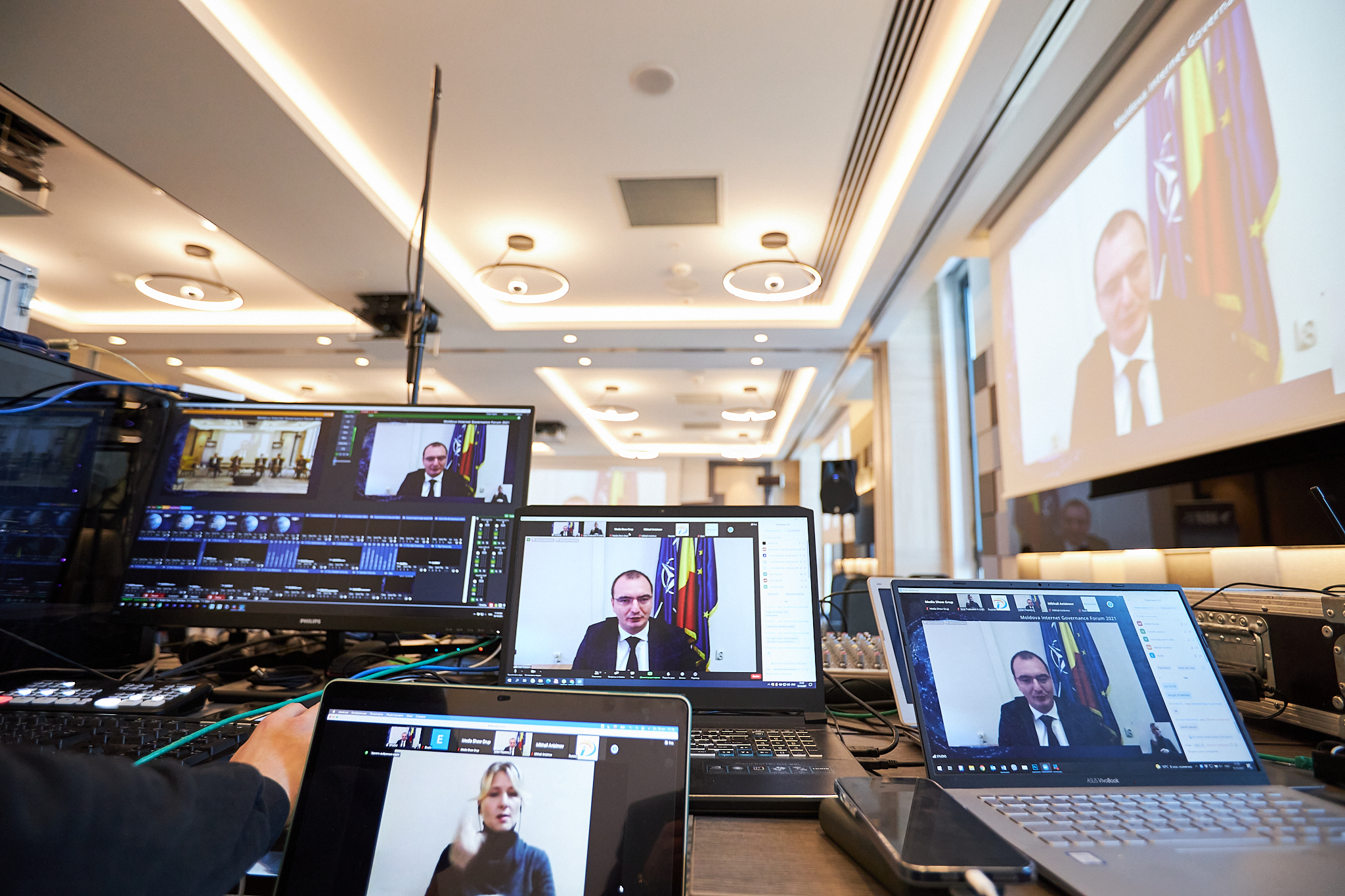
This week Moldova hosted the second Internet Governance Forum (MIGF 2021), which took place in a hybrid format on October 19-20. The Forum, organized by the Association “Comunitatea Internet”, became an international platform for an open dialogue between different stakeholder groups: civil society, technical and scientific community, private sector, government and public sector.
Parliamentarians, representatives of the government and key state institutions, international and non-governmental organizations, technology and consulting companies, experts in the field of digital business and digital development joined the discussions. More than 50 speakers and experts from Moldova, Romania, Ukraine, Russia, Georgia, Estonia, Serbia, Kyrgyzstan, Kazakhstan, Canada, USA and other countries participated in MIGF.
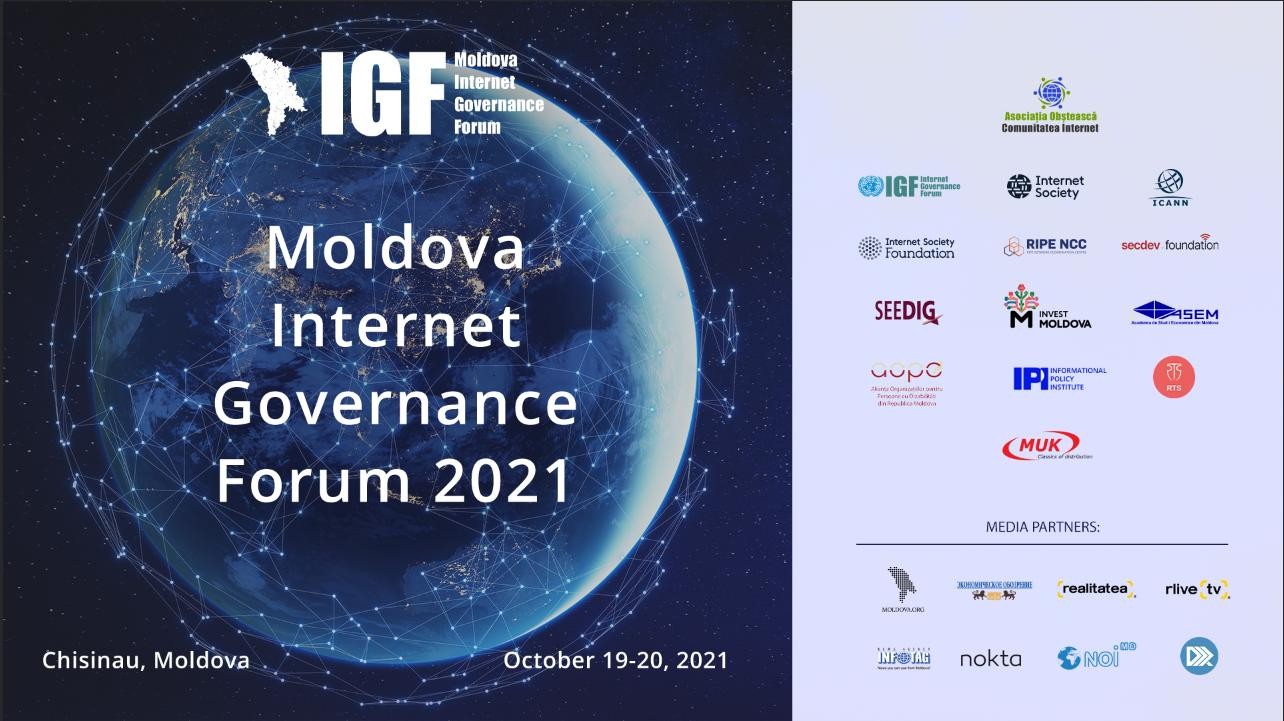
Iurie Țurcanu, Deputy Prime Minister for Digitalization, said at the Opening of the Forum that “we need a safe and secure Internet, we must make every effort to have a guaranteed and secure virtual space, where every user can use the Internet safely”. “MIGF is a good opportunity to discuss this topic of great importance, especially now, in the context of the global pandemic crisis. I would like to note the importance of meeting in this format and the need to strengthen the efforts of different categories of actors, such as the public sector, civil society, the technical community, academia, the private sector, international organizations, to discuss problems related to access to the Internet, as well as security in the virtual environment. I would like to thank the participants and organizers for having the courage to organize such an event in such difficult times”, the Deputy Prime Minister noted.
Iurie Țurcanu assured of the Moldovan Government’s openness for cooperation. “It is crucial for us to maintain this connection and, by combining efforts, perseverance and consistent investments, find a balance between sustainability and digital development. Leveraging the resources of multi-stakeholder partnerships can facilitate investments in digital infrastructure and build capacity for data privacy and security. These actions are essential for Moldova’s digital future,” concluded the Deputy Prime Minister.
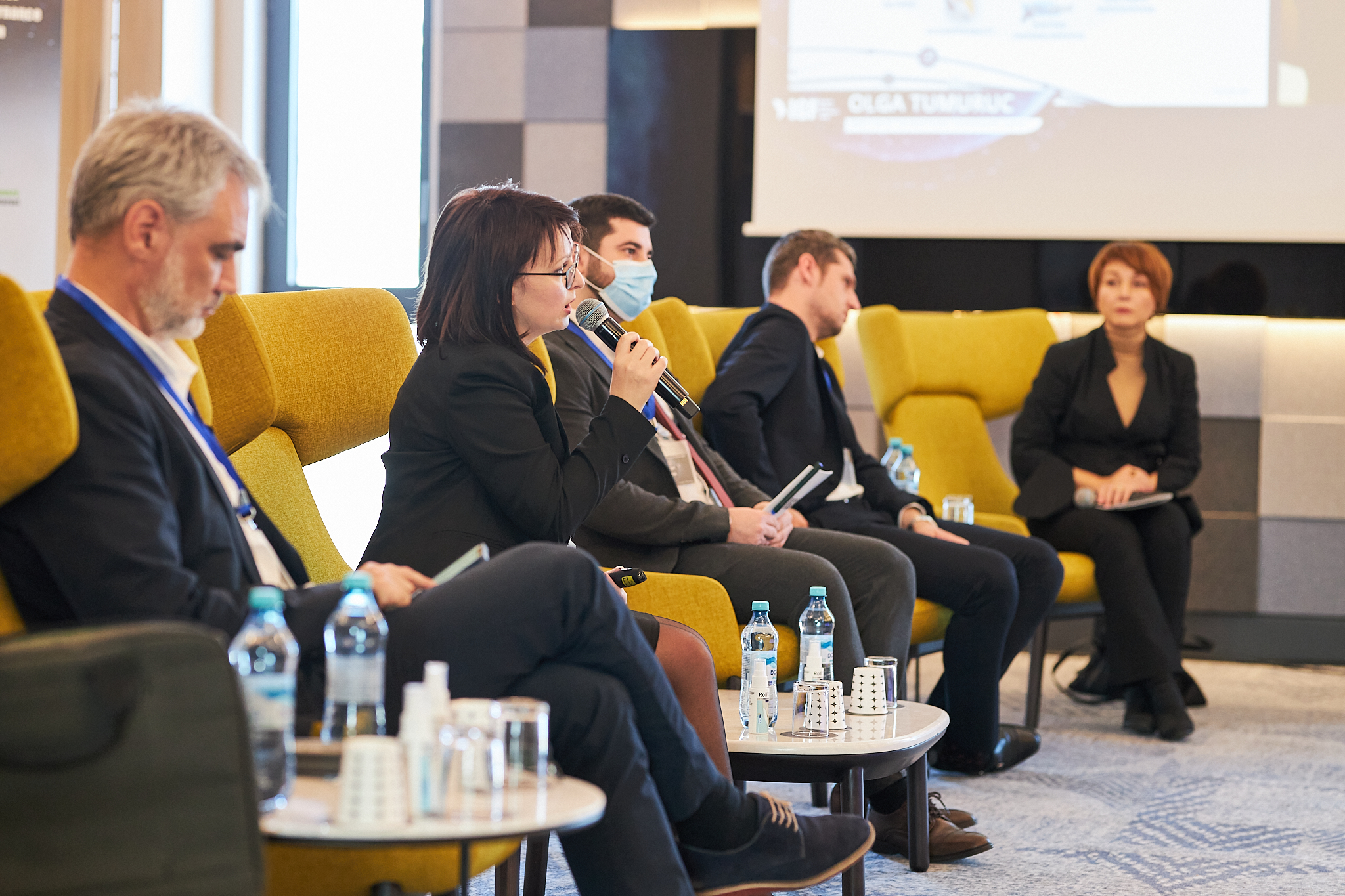
Stelian Manic, Director General of the Invest Moldova Agency, recalled the importance of efficient Internet governance in the modern society. He said the Internet governance ecosystem implies that each country must bring technological innovations to the government, redefining processes, streamlining public services and engaging them for the benefit of citizens. At the same time, he pointed out that Internet governance is not just about effective, efficient and responsive management based on smart investments in information technology. It must also be about security and reliability, sustainability and trust.
“Whether the Internet will be transparent, secure and accessible to all depends on our ability to work together and guide these technologies in ways that maximize benefits and minimize unintended consequences and risks. All we need to do now is create a safe space that promotes the empowerment of Internet users. A safe space for learning, work, play, discovery and growth”, stated the Head of Invest Moldova.
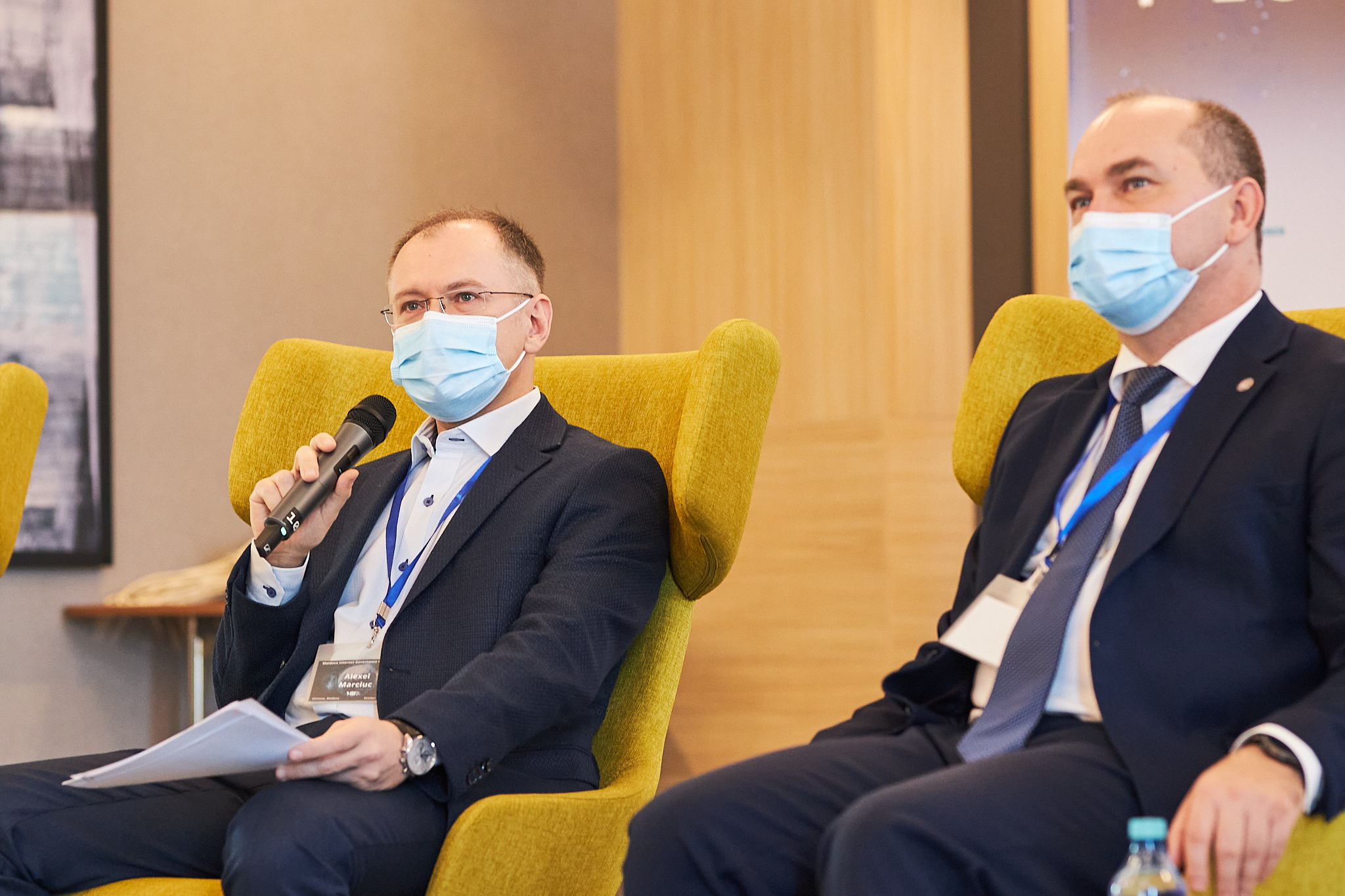
Representatives of international partner organizations addressed the Forum participants with welcoming remarks: Chengetai Masango, Head of the United Nations Secretariat for the Internet Governance Forum, David Frautschy Heredia, Director for European Government and Regulatory Affairs at Internet Society (ISOC), Mikhail Anisimov, Head of Global Stakeholder Engagement for Eastern Europe and Central Asia, Internet Corporation for Assigned Names and Numbers (ICANN), Chris Buckridge, Head of External Relations for the RIPE NCC, Regional Internet Registry for Europe, the Middle East and Central Asia, Olga Kyryliuk, Chair at South Eastern European Dialogue on Internet Governance (SEEDIG), Tattu Mambetalieva, Chair at Central Asian Internet Governance Forum (CAIGF).
Speakers welcomed multi-stakeholder discussions involving national and international stakeholders on how best to use digital data for the public good, how to shape and improve data governance mechanisms that recognize diversity, empower business and civil society, and contribute to the Sustainable Development Goals. These goals include bridging the digital divide, promoting digital inclusion, achieving universal connectivity, and protecting human rights on the Internet.
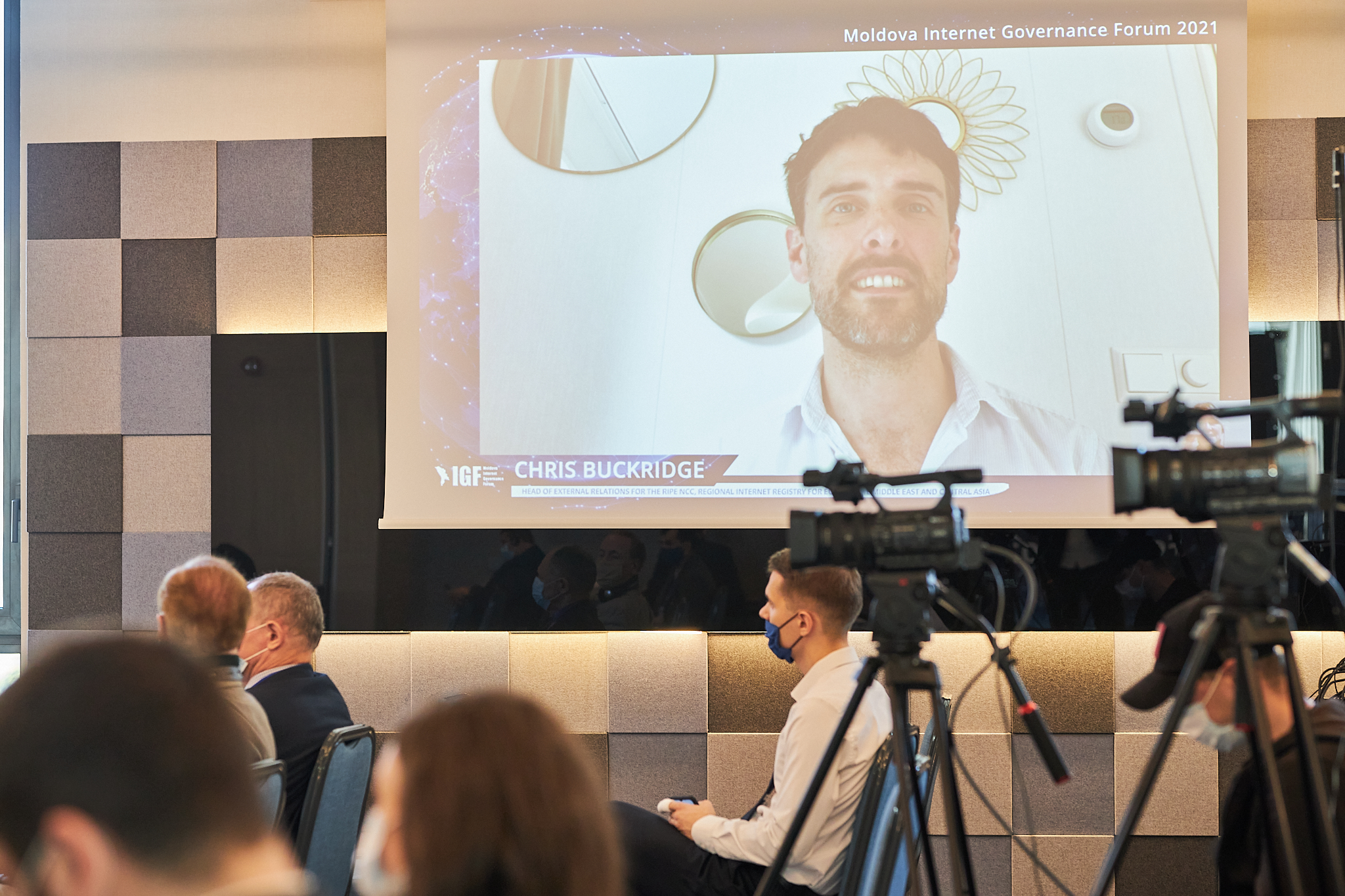
Alexei Marciuc, Chairman of the Association “Comunitatea Internet” and MIGF coordinator, reminded that the Internet Governance Forum is held in Moldova for the second year in the context of the COVID-19 pandemic, which highlighted the importance of digital technologies and the urgent need to enhance the role of IGF as a platform for dialogue, playing a unique role in the architecture of digital cooperation. He said the pandemic highlighted the needs of digital development and the need for digital empowerment.
“Two years into the COVID-19 pandemic confirmed that Internet access protects health care, jobs and, without exaggeration, lives. At the same time, the pandemic exacerbates inequalities of all kinds, including the digital divide. Those without access to digital technologies are deprived of the opportunity to learn, communicate, trade, shop, work and participate in many areas of modern life. On the other hand, connectivity has increased vulnerability to harm and abuse of all kinds. In particular, we have encountered an increase in such phenomena as disinformation, hate speech, and discrimination in the digital space,” said Alexei Marciuc.
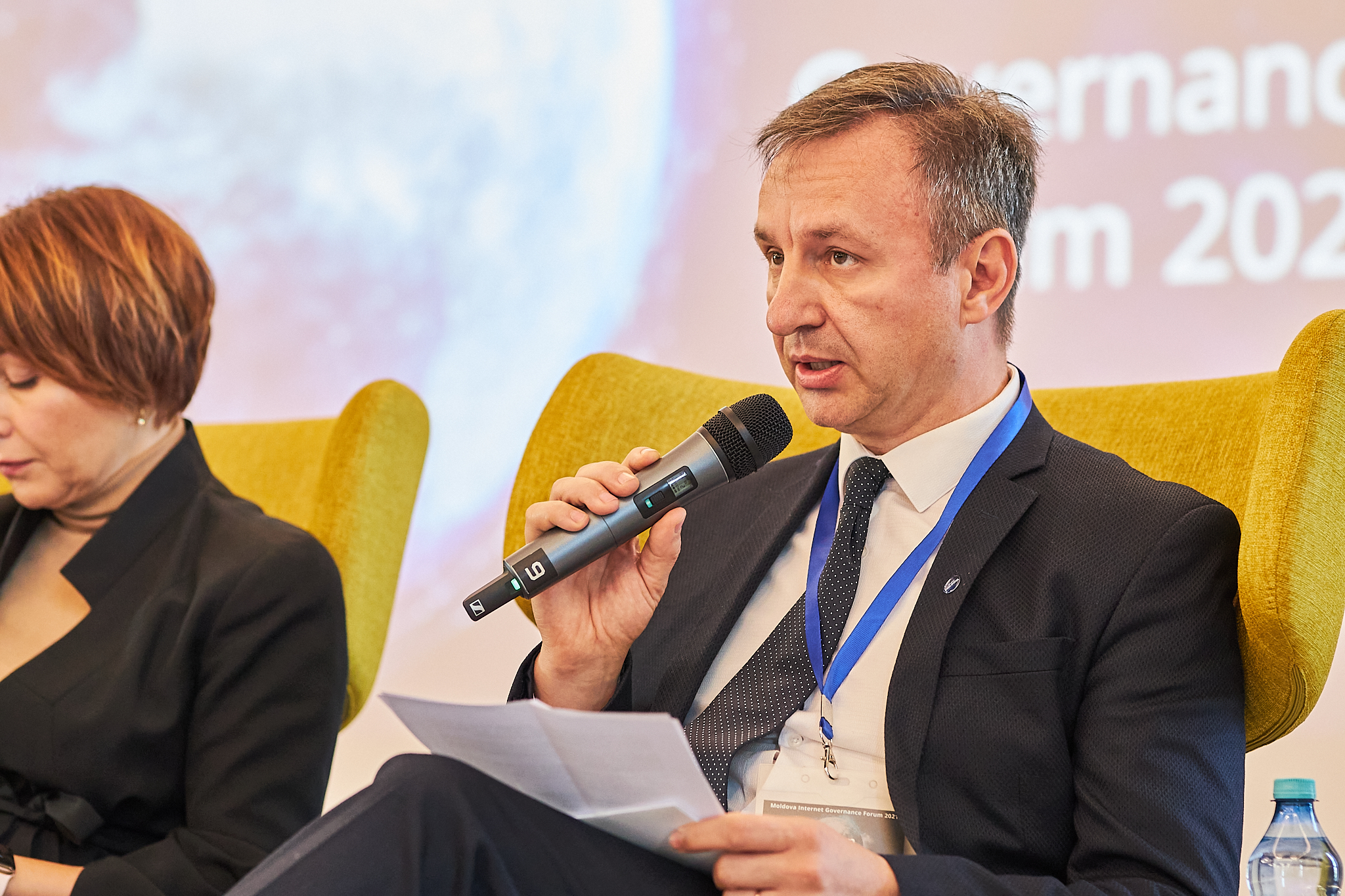
Olga Tumuruc, Director of the e-Government Agency, took part in the panel discussion “Digital Inclusion and Multilateral Cooperation in Managing the Digital Future,” she presented to the audience the work of the institution and its main tasks: modernization of public services, coordination of investments in information technologies, development and implementation of e-transformation solutions, creation of platforms and services to improve relations between the state, citizens and business. Olga Tumuruc also mentioned initiatives for digital inclusion of certain categories of population and ensuring access to public services for people with disabilities through innovative tools, applications and modern technologies.
The Internet Governance Forum in Moldova is held with the support of international partners, including the UN IGF Secretariat, ICANN, Internet Society, Ripe NCC, SecDev Foundation and national partners – Invest Moldova Agency, Academy of Economic Studies, IT consulting and security companies RTS and MUK, as well as a number of civil society organizations and state institutions.
At the core of this year’s MIGF agenda: digital inclusion, which is necessary for sustainable economic recovery, issues of trust, security and stability in the digital space, Internet freedom, e-learning, regulation of ICT sector in the period of digital transformation. A separate session addressed the issues of digital accessibility for people with disabilities and special needs. In addition, the Forum included special events organized jointly with Freedom House and The SecDev Foundation, Canada.
IT
MIGF 2021: Moldova’s Digital Future in the COVID-19 Era
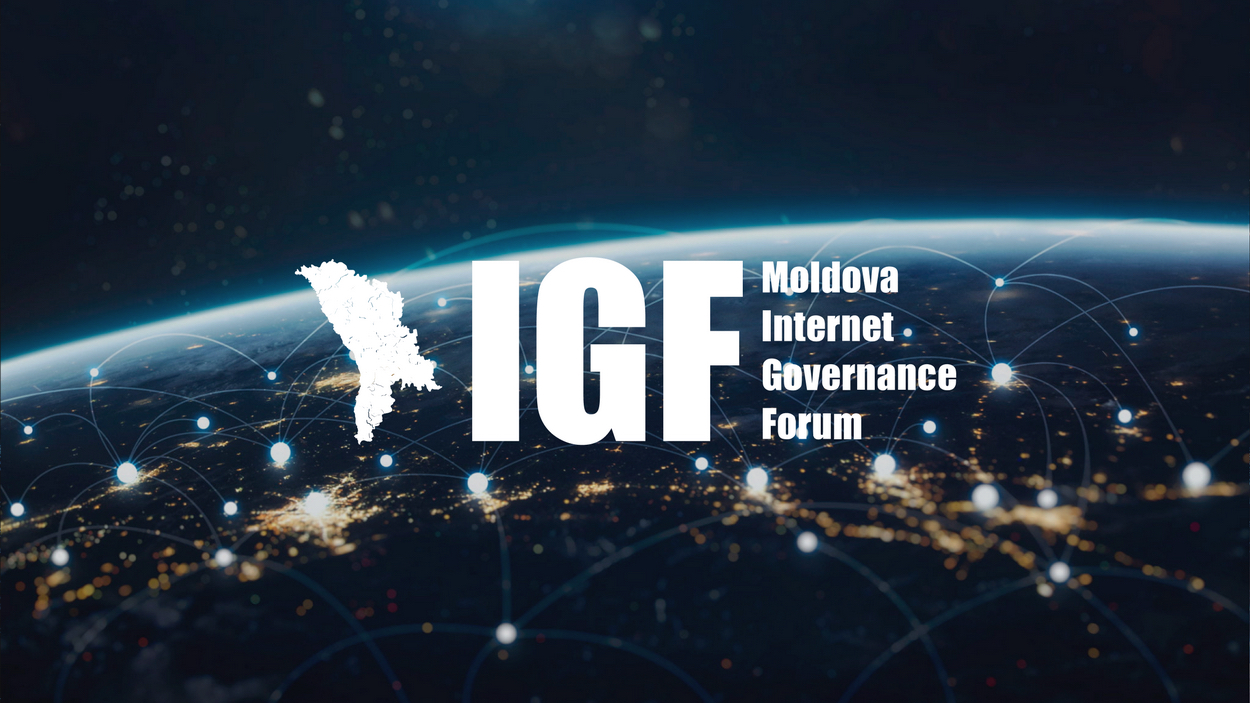
The Internet Governance Forum (MIGF) will be held in Chisinau on October 19-20. It will be attended by representatives of government agencies, international, non-governmental and expert organizations, digital business, technology companies, digital development experts from Moldova, Romania, Ukraine, Kyrgyzstan, Canada, the United States and a number of other countries.
The discussion of current problems of the digital agenda and the development of the Internet will be focused on 4 main tracks: trust and security, digital Inclusion and bridging the digital divide, digital rights and freedoms, digital data. Forum agenda consists of 8 plenary sessions and panel discussions, including special events, jointly organized with Freedom House and SecDev Foundation.
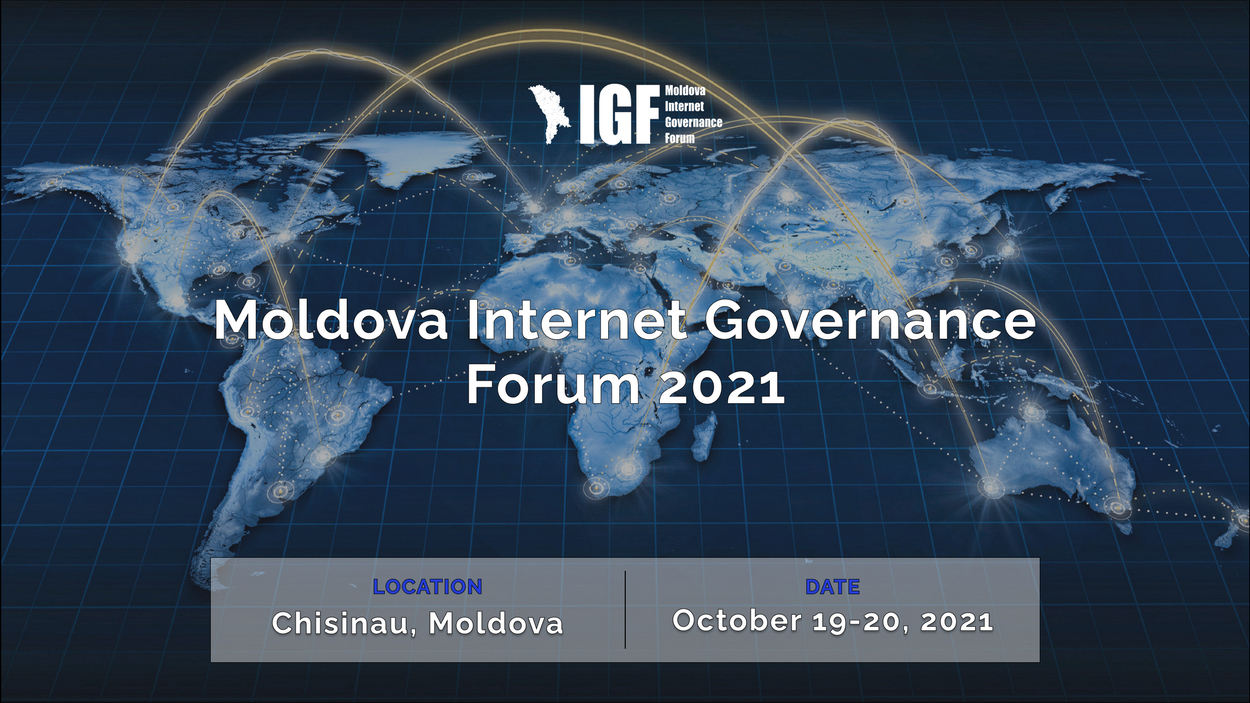
”In 2021, MIGF sets itself the task of strengthening open multilateral discussion of the development of the Internet in Moldova, the country’s participation in the formation of the global digital agenda, and a joint search for a balance between security and development. The COVID-19 pandemic has drawn special attention to the needs of digital development, the need to empower digital rights and opportunities against the backdrop of serious difficulties that society and the state face during this period”, said MIGF Coordinator Alexei Marciuc.
According to him, the holding of MIGF 2021 in Chisinau will serve to actualize the tasks of the digital agenda in the post-pandemic crisis, determine the prospects for multilateral dialogue on the sustainability of the global Internet and the priorities of a common digital future.
The forum will host expert discussions, speeches and presentations both online and offline. It is planed the participation of representatives of UN IGF, ICANN, RIPE NCC, Internet Society (ISOC), SecDev Foundation, Freedom House, Microsoft, SEEDIG, etc. Among the national partners of the forum are the Investment Agency “Invest Moldova”, the Academy of Economic Studies of Moldova, non-governmental organizations, companies RTS and MUK in the field of IT-consulting and security. Special guests of the event: Deputy Prime Minister for Digitalization Iurie Turcanu, members of Parliament, representatives of key government agencies, national and international organizations.
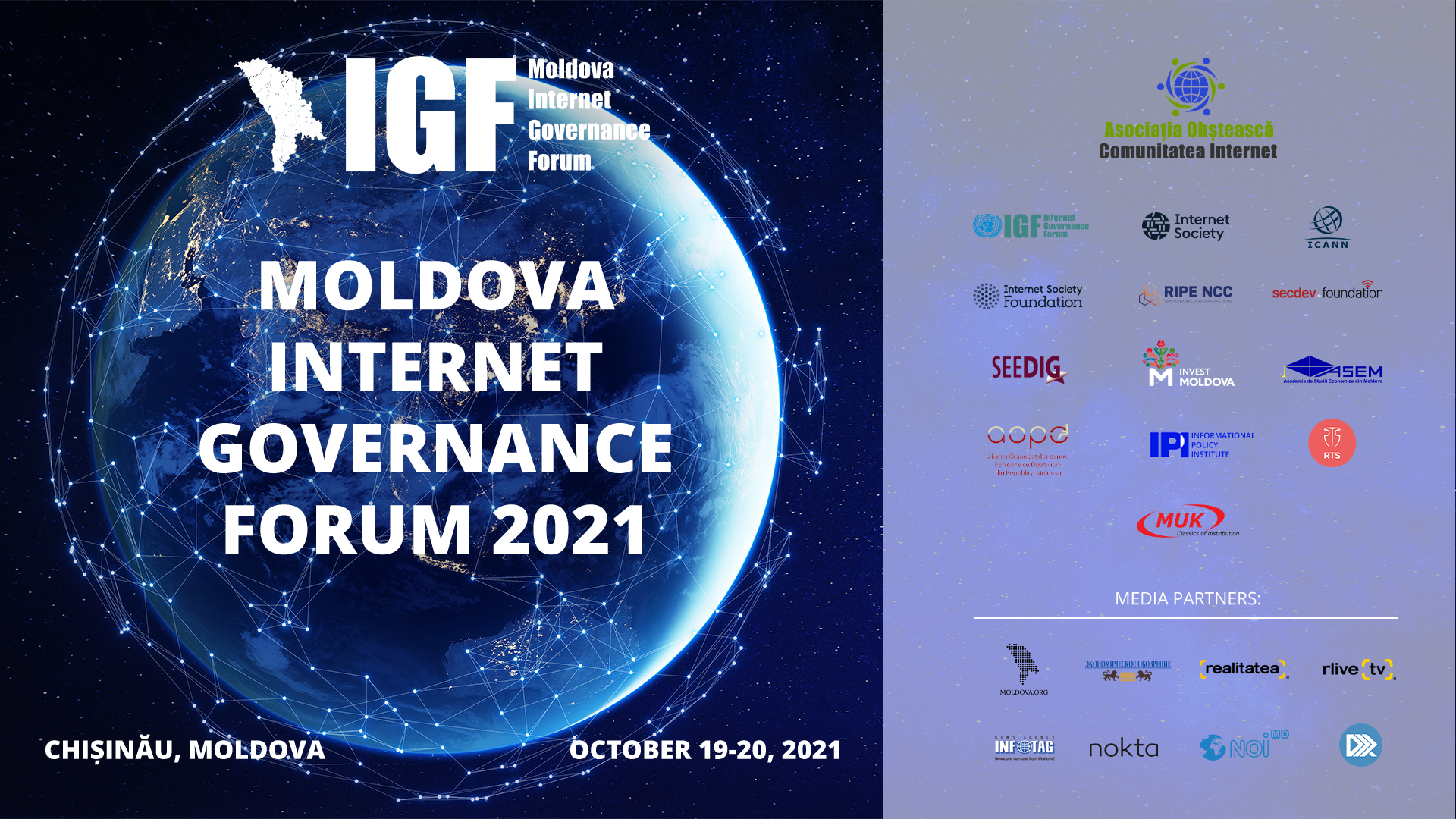
As part of the main tracks, expert discussions will be held on the topics:
- Digital inclusion and multistakeholder cooperation in managing the digital future
- Trust, security and stability in the digital space
- Digital accessibility for people with disabilities and special needs
- Internet freedom in Central and Eastern Europe. Trends and сhallenges, lessons for Moldova
- ICT regulatory in times of digital transformation
- Data sovereignty and trusted online identity
- E-learning as a road to online universities. National and regional experience
- The Rationale for a culture of digital safety in civil society organizations
The Moldova Internet Governance Forum is a national initiative of the global IGF of the United Nations, which in turn is convened by the UN Secretary General and is an international multi-stakeholder platform for dialogue on Internet governance issues.
Since 2020, MIGF has become an annual event where representatives of the expert community discuss global and national approaches to Internet governance, cybersecurity and digital resilience, regulation, expanding Internet access and bridging the digital divide, innovation and digital development strategies.
To register for participation in the MIGF, use the online form on the website www.igf.md. Registered attendees will receive an email connection information to participate in this event.








